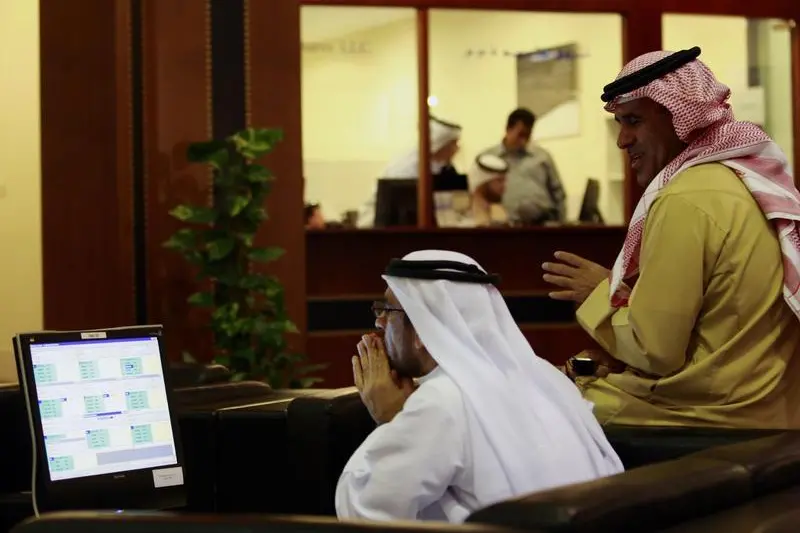PHOTO
Key Gulf Cooperation Council (GCC) governments, particularly Saudi Arabia and the United Arab Emirates (UAE), are accelerating the sale of minority stakes in government-related entities (GREs), which has been supporting the capital market activity in the region. Both governments have also made a slew of recent announcements about several more to come.
These are supportive measures which we believe will help in further developing the debt and equity markets of the countries, creating revenue generation opportunities for the individual governments, increasing market transparency and the overall corporate governance practices.
The large economic footprint of governments and their related entities in key sectors is a common feature of GCC countries.
The increased participation of large GREs in the capital markets may not only create momentum for the capital markets, but also provide institutional investors access to key strategic sectors of the region – such as oil and gas, and utilities, among others – while further increasing investor interest for the region.
Under Vision 2030, the Kingdom of Saudi Arabia is working on diversifying away from oil by promoting the development of the private sector via investments in tourism, energy, industry among others, and further deepening its capital markets.
For example, the Kingdom wants to invest around $1.3 trillion into its economy under Shareek – its public-private partnership program which aims to increase domestic investments of private sector companies. Here, Saudi GREs will play a very important role for investment across the strategic sectors as well as raising capital.
Aramco's successful IPO in late 2019 was a major milestone, and while 2020 was a slow year, plagued by COVID-19 related disruptions, we saw a significant acceleration in activity in 2021. For example, Aramco announced two large sale and lease-back transactions in 2021 to monetize future cash flow from its pipelines.
Because Saudi Arabia’s Public Investment Fund (PIF) holds large positions in most key GREs, including STC, SEC, ACWA, among many others, we expect the sovereign wealth fund will play a central role in monetization, capital raising, and investment allocation decisions under the Shareek program.
For example, in 2021, three companies (International Co. for Water and Power Projects, Saudi Telecom Co. Ltd, and Tadawul) controlled by the PIF had equity market transactions.
Monetization of such government assets can act as a channel to attract foreign investment to support the government’s agenda, including its economic diversification plans under Vision 2030. Thus, given the ambitious Shareek program, we expect continued elevated activity in the Kingdom over the next few years across all key sectors.
Similarly, over the past five years, the UAE has seen efforts by the Abu Dhabi government to reorganize some of its GREs, optimize their performance, further improve their governance, and bring in institutional investors to support the development of Abu Dhabi's non-oil economy and capital markets.
Within that context, there have been a series of large mergers which initially started in the banking space. They spread to key sovereign wealth funds, such as the merger between Mubadala and IPIC, as well as the establishment of ADQ as a new sovereign wealth fund in 2018. Given the Abu Dhabi government's intention to use its portfolio more actively, we believe that both Mubadala and ADQ will remain active players in the equity capital markets over the next few years.
Abu Dhabi National Oil Co. (ADNOC) has been the leading entity for the Abu Dhabi government in terms of offering its key assets to institutional investors via private and public equity market deals. For example, in 2019, ADNOC sold a 40 percent stake in ADNOC Oil Pipelines for $4 billion. In the second quarter of 2020, ADNOC sold a 49 percent stake in ADNOC Gas Pipeline Assets LLC for $10 billion. And finally, in the third quarter of 2020 ADNOC sold a 49 percent stake in Abu Dhabi Property Leasing Hold Co. RSC Ltd for $2.7 billion.
It is likely the GRE IPO market will remain active in 2022 in the United Arab Emirates. In 2021, the Abu Dhabi government launched a $1.4 billion IPO fund that will invest in 5-10 private-sector new listings on the ADX every year. Abu Dhabi Ports, which is controlled by ADQ, one of the largest sovereign wealth funds in the UAE, floated its shares on the ADX this year.
In late 2021 the Dubai government announced several initiatives after making changes to the management of the Dubai Financial Market. It announced the intention to float 10 state-owned companies, and that a $545 million market maker fund would be established to encourage listings and facilitate secondary trading. Consequently, in March, Dubai Water and Electricity Authority (DEWA) sold a 17 percent stake to raise $6.1 billion in the world’s second-biggest IPO this year. The utility’s float is the largest listing ever in the UAE and is the largest listing in the Middle East since Saudi state oil giant Aramco went public on KSA’s Tadawul exchange in 2019.
We believe the increased market participation by the GCC entities is also supportive for governance practices. Governance practices are stronger for companies active in the capital markets because they are subject to greater regulatory scrutiny, disclosure, and market discipline. Similarly, government ownership appears to bring closer supervision of certain basic governance practices. Where GREs remain controlled by the government, any public policy goals it has are less likely to be implemented if they can harm the entity’s financial standing.






















